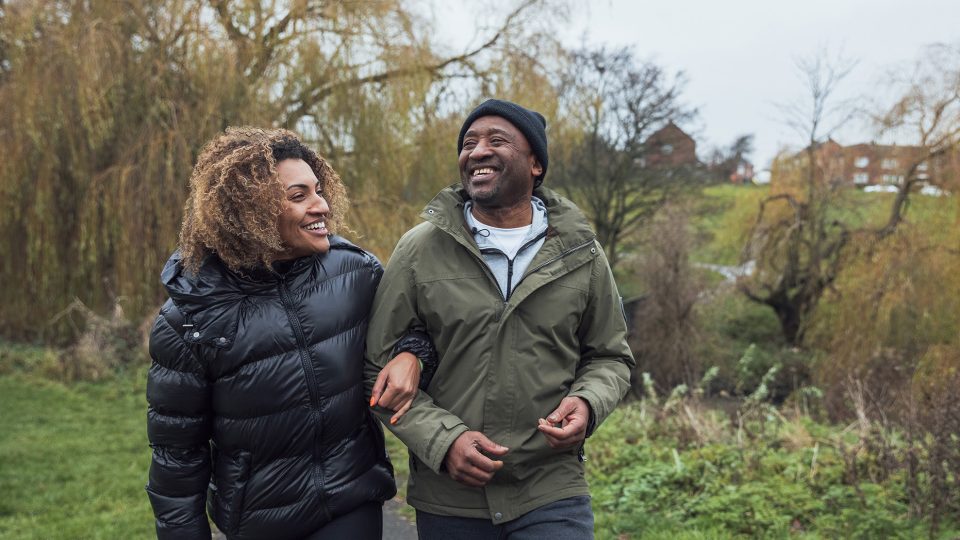Discover how smoking impacts health including links to cancer, mental health and fertility issues.

How does smoking impact health?
Smoking currently kills around 100,000 people in the UK every year and will claim the lives of 6,000 Londoners this year [1].
Cigarettes contain thousands of toxic chemicals and are the leading cause of preventable death in the UK.
Smoking causes cancer, heart disease, stroke, lung diseases, diabetes, and chronic obstructive pulmonary disease (COPD), which includes emphysema and chronic bronchitis.
Smokers lose 6 hours of healthy life each day they smoke after the age of 30. On average they lose 10 years of life compared to non-smokers. The sooner you quit, the sooner your body can begin recovering.
What is smoking doing to my lungs?
Respiratory diseases such as lung cancer, asthma, tuberculosis, COPD, and pneumonia affect the airways and other parts of the lungs – making it difficult to breathe and causing shortness of breath.
Smoking causes 72% of all lung cancer cases in the UK. As soon as you give up smoking, you will quickly feel an improvement in your physical and mental health as your body begins to heal itself.
Within a year of quitting smoking, you will probably find yourself coughing phlegm less frequently and your lung function will have increased, on average, by 10%.
Is smoking affecting my heart?
More than 15,000 heart and circulatory disease deaths in the UK are caused by smoking. In London, 20 people in every 100,000 smokers will die from smoking related heart disease.
The chemicals in cigarettes cause the walls of your arteries to become sticky with tar. This reduces capacity within the blood vessels – making it harder for blood to flow properly around the body and increasing the likelihood of suffering a heart attack or stroke.
Smoking also raises the risk of people developing blood clots, type 2 diabetes as well as causing a reduction in oxygen delivery around the body.
Carbon monoxide and tar are extremely harmful to your health, and nicotine – the addictive and relatively safe chemical found in cigarettes – increases your heart rate and raises your blood pressure.
Will I get cancer from smoking cigarettes?
Cigarette smoke contains more than 5000 chemicals, 70 of which are extremely dangerous and are known to cause over 15 different kinds of cancer including lung, bowel, liver and stomach cancer.
Quitting smoking tips that really work
London GP, Dr Eugenia Lee shares her top tips for stop smoking success.

Will smoking affect my fertility?
Smoking damages both male and female fertility.
Research shows that smoking cigarettes can significantly impact male sperm quality. Compared to non-smokers, male smokers typically have lower semen volume, lower sperm count, reduced sperm mobility and a lower sex drive.
Among women, smoking impacts uterine receptivity, affecting the uterus’ ability to allow embryos to implant. The level of uterine receptivity decreases in proportion to the number of cigarettes smoked.
The risk of ectopic pregnancy is higher in smokers and those exposed to second-hand smoke. Menstrual cycles are also usually shorter and more unpredictable for smokers compared to non-smokers.
I am pregnant and smoke. Does smoking affect my baby?
For those who are pregnant, smoking can have devastating effects on the health of your growing baby. Women who smoke during pregnancy increase the likelihood of experiencing miscarriage, stillbirth and low birth weight.
Tobacco smoke reduces the flow of oxygen and nutrients to the placenta – this can lead to numerous birthing complications, including:
- Miscarriage
- Ectopic pregnancy
- Stillbirth or death shortly after birth
- Birth defects, such as cleft lip or palate
- Poor growth and overall health issues
- Bleeding during the last months of pregnancy
- Premature birth
There is no safe level of smoking for you or your baby. Get help to quit smoking today here.
How does smoking affect my mental health?
Smokers tend to view cigarettes as a stress reliever.
This misconception is due to the chemical reaction occurring in your brain. When smoking a cigarette, the chemical found in tobacco – nicotine – triggers the release of dopamine. This gives smokers a sense of calm.
Dopamine provides a short-lived sense of relaxation and calmness for around 20 minutes after smoking.
However, this feeling quickly fades and usually causes smokers to reach for another cigarette due to heightened feelings of anxiety and stress.
This cycle can quickly lead to smokers becoming dependent on nicotine for stress management and consequently, increasing chances of suffering from diseases such as cancer, lung disease, and dementia.
Scientific research has also concluded that smoking has a damaging effect on people suffering from depression, anxiety, and decreased brain health in life.
Is second-hand smoke from cigarettes dangerous?
Breathing in other people’s cigarette smoke – second-hand smoke as it’s commonly known – is also dangerous, especially for non-smokers and those who may suffer from respiratory conditions such as asthma.
The cancer-causing chemicals in smoke mean that there is no safe level of exposure to second-hand smoke.
The short-term effects of exposure to passive smoke include eye irritation, headaches, coughs, sore throat, dizziness and nausea.
Adults with asthma can also experience a significant decline in lung function when exposed to second-hand smoke for significant periods.
Long-term, people and even pets subjected to passive smoke suffer an increased risk of smoking-related diseases such as lung cancer and coronary heart disease.
I smoke and have a small child
It is common for children to develop asthma if living with parents and/or guardians who smoke.
Breathing in second-hand smoke is especially harmful for children. Their bodies are still developing – this can cause lasting damage to airways, lungs, ear and chest infections as well as the immune system.
Aside from quitting smoking, you can better protect people from second-hand smoke by creating smoke-free environments:
- Not smoking indoors or in enclosed spaces such as the car
- Opening windows
- Ask visitors to smoke outside
Learn how other people quit smoking successfully
Following the loss of his wife who suffered a heart attack caused by smoking, Liam knew it was important to quit cigarettes for good.
Motivated by his wife, Liam quit smoking by switching to vaping and combining support from his local stop smoking service.
If you are thinking of swapping smoking for a vape, watch this video from Debbie Robson – Senior Lecturer in Tobacco Harm Reduction at King’s College London – as she explains the health differences between vaping and smoking tobacco.
Quit smoking with Stop Smoking London
Stop Smoking London is here to help you quit smoking for good. We have helped thousands of Londoners successfully quit tobacco.
You are three times more likely to quit smoking for good when combining expert support with medication such as nicotine replacement and other resources such as our free text messaging service, our free stop smoking helpline or book an appointment with a tobacco advisor at your local stop smoking service, your GP or your pharmacist.
This free service has been developed with insights from leading medical professionals and individuals who have successfully quit smoking.
It delivers motivational text messages to help you during your quitting journey and has been created based on the five most common reasons for smokers looking to give up:
- Improve general health
- Pregnancy
- Saving more money
- Encouragement from family/friends and/or partner
- Planning a family
You can sign up for the free text messaging service here.
Smokers can also access support, tips, and helpful guides.
References
The following article has been drafted using information, facts and figures from the following:
- Up in smoke: how tobacco drives economic and health inequalities – ASH [1]
- https://www.rcplondon.ac.uk/projects/outputs/hiding-plain-sight-treating-tobacco-dependency-nhs?msclkid=cd5ba00fa9f611ec9cf59f8bae1f3ecf
- Smoking and Respiratory Disease – ASH
- Smoking, the Heart and Circulation – ASH
- Smoking – BHF
- Smoking, tobacco and cancer | Cancer Research UK
- The influence of cigarette smoking on a population of infertile men and women | Archives of Gynecology and Obstetrics (springer.com)
- Smoking, Pregnancy and Fertility – ASH
- Smoking and pregnancy | RCOG
- Smoking and mental health | Mental Health Foundation
- Health Matters: Smoking and mental health – UK Health Security Agency (blog.gov.uk)
- Secondhand Smoke – ASH
- Greater Manchester’s Smokefree Spaces (makesmokinghistory.co.uk)
- Take it right outside | NHS inform
- https://assets.publishing.service.gov.uk/media/5a7c176f40f0b645ba3c6a52/4177.pdf
- https://www.macmillan.org.uk/cancer-information-and-support/lung-cancer/causes-and-risk-factors-of-lung-cancer#:~:text=In%20the%20UK%2C%2072%25%20of,same%20as%20a%20non%2Dsmoker.
- https://www.bhf.org.uk/informationsupport/risk-factors/smoking
- https://ash.org.uk/resources/view/secondhand-smoke
- https://www.niquitin.co.uk/what-happens-lungs-after-quitting-smoking/
- https://fingertips.phe.org.uk/static-reports/tobacco-control/at-a-glance/E12000007.html?area-name=London%20region



